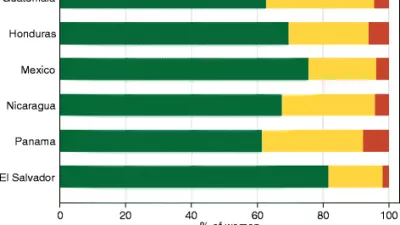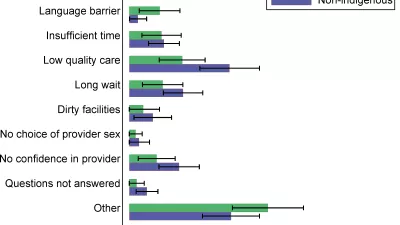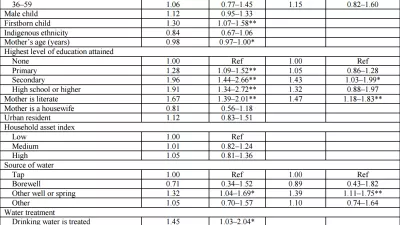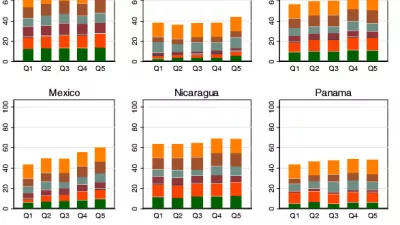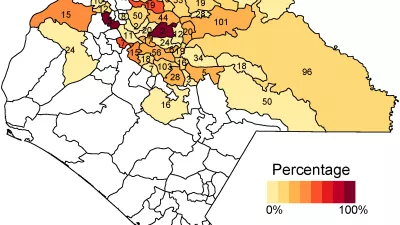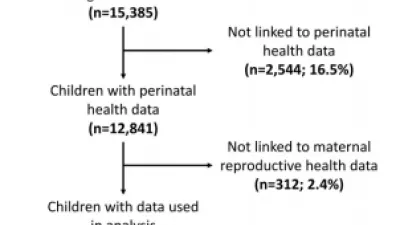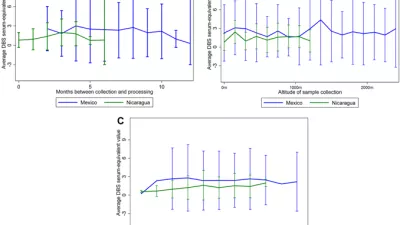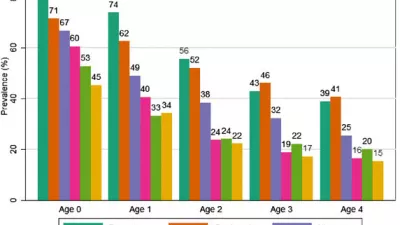Salud Mesoamérica Initiative publications
Coverage and timing of antenatal care among poor women in 6 Mesoamerican countries
Poor women in the developing world have a heightened need for antenatal care (ANC) but are often the least likely to attend it. This study examines factors associated with the number and timing of ANC visits for poor women in Guatemala, Honduras, Mexico, Nicaragua, Panama, and El Salvador.
Institutional Delivery and Satisfaction among Indigenous and Poor Women in Guatemala, Mexico, and Panama
Indigenous women in Mesoamerica experience disproportionately high maternal mortality rates and are less likely to have institutional deliveries. Identifying correlates of institutional delivery, and satisfaction with institutional deliveries, may help improve facility utilization and health outcomes in this population. We used baseline surveys from the Salud Mesoamérica Initiative to analyze data from 10,895 indigenous and non-indigenous women in Guatemala and Mexico (Chiapas State) and indigenous women in Panama.
Diarrhea prevalence, care, and risk factors among poor children under 5 years of age in Mesoamerica
Care practices and risk factors for diarrhea among impoverished communities across Mesoamerica are unknown. Using Salud Mesoamérica Initiative baseline data, collected 2011–2013, we assessed the prevalence of diarrhea, adherence to evidence-based treatment guidelines, and potential diarrhea correlates in poor and indigenous communities across Mesoamerica. This study surveyed 14,500 children under 5 years of age in poor areas of El Salvador, Guatemala, Mexico (Chiapas State), Nicaragua, and Panama.
Missed opportunities for measles, mumps, and rubella (MMR) immunization in Mesoamerica: potential impact on coverage and days at risk
Recent outbreaks of measles in the Americas have received news and popular attention, noting the importance of vaccination to population health. To estimate the potential increase in immunization coverage and reduction in days at risk if every opportunity to vaccinate a child was used, we analyzed vaccination histories of children 11–59 months of age from large household surveys in Mesoamerica.
Health and wealth in Mesoamerica: findings from Salud Mesomérica 2015
Individual income and poverty are associated with poor health outcomes. The poor face unique challenges related to access, education, financial capacity, environmental effects, and other factors that threaten their health outcomes.
Comparative estimates of crude and effective coverage of measles immunization in low-resource settings: Findings from Salud Mesoamérica 2015
Timely and accurate measurement of population protection against measles is critical for decision-making and prevention of outbreaks. However, little is known about how survey-based estimates of immunization (crude coverage) compare to the seroprevalence of antibodies (effective coverage), particularly in low-resource settings. In poor areas of Mexico and Nicaragua, we used household surveys to gather information on measles immunization from child health cards and caregiver recall.
Breastfeeding practices among poor women in Mesoamerica
We estimated the prevalence of ever breastfeeding, early initiation of breastfeeding, exclusive breastfeeding, and breastfeeding between 6 mo and 2 y of age using household survey data for the poorest quintile of families living in 6 Mesoamerican countries. We also assessed the predictors of breastfeeding behaviors to identify factors amenable to policy interventions.
Use of a commercial ELISA for the detection of measles-specific immunoglobulin G (IgG) in dried blood spots collected from children living in low-resource settings
Seroepidemiological monitoring of population immunity to vaccine-preventable diseases is critical to prevent future outbreaks. This study validates a novel technique for measuring measles-specific immunoglobulin G (IgG) in capillary DBS using a commercial ELISA.
Salud Mesoamérica 2015 Initiative: design, implementation, and baseline findings
Health has improved markedly in Mesoamerica, the region consisting of southern Mexico and Central America, over the past decade. Despite this progress, there remain substantial inequalities in health outcomes, access, and quality of medical care between and within countries. Poor, indigenous, and rural populations have considerably worse health indicators than national or regional averages. In an effort to address these health inequalities, the Salud Mesoamérica 2015 Initiative (SM2015), a results-based financing initiative, was established.
Disparities in HIV screening among pregnant women – El Salvador, 2011
The objectives of this study were to provide an accurate estimate of antenatal HIV screening and its determinants among pregnant women in El Salvador and help local authorities make informed decisions for targeted interventions around mother-to-child transmission (MTCT).
